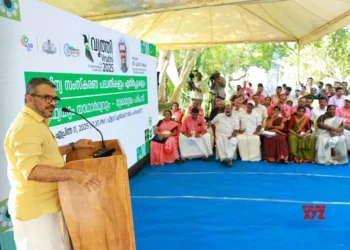High-yielding & stress-tolerant seed varieties can enhance productivity by up to 15-20% : Industry leaders: Industry leaders have highlighted the need for a comprehensive review of production practices to improve rice productivity in Punjab and ensure resource conservation.
With a projected requirement of 136-150 million tonnes of rice by 2031, they emphasized the adoption of high-yielding, stress-tolerant seed varieties. Currently, only 3 to 3.5 lakh acres of the 75 lakh acres of rice acreage in Punjab are dedicated to high-yielding cross-bred varieties, offering room for expansion to boost output sustainably.
Ajai Rana, FSII Chairman and CEO of Savannah Seeds, noted that hybrid rice varieties, already adopted in the USA, China, and parts of India, meet milling standards and can increase yields by up to 20% while using 30% less water.
This makes hybrid rice a viable option amid Punjab’s declining groundwater levels and issues like stubble burning. FSII members, including Baljinder Singh Nandra of SeedWorks International, stressed that sustainable rice production relies on breeding innovations, climate-resilient seeds, and policy support to ease the transition for farmers. Farmer Paramjit Singh from Punjab shared that small farmers need training, financial support, and insights to adopt these practices effectively.
Industry leaders urged a collaborative approach between government, research institutions, and the private sector to make sustainable rice production accessible for small-scale farmers through policy incentives and subsidies.























